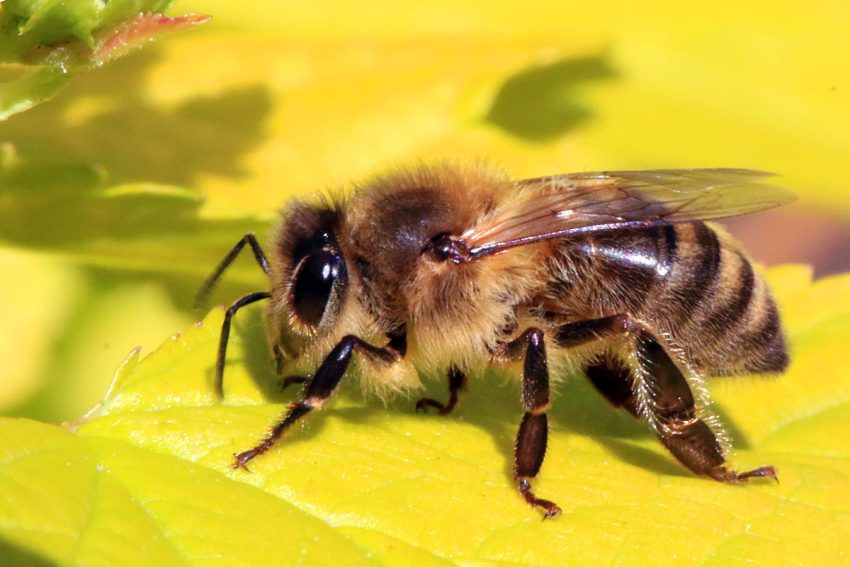The installation of beehives with live honey bees on fences around smallholder farms in Kenya repelled elephants by more than 86 percent during peak crop season, according to a study released Tuesday in Nairobi, the Kenyan capital.
The study published in the journal Conservation Science and Practice finds that as conflicts between the iconic herbivore and local communities have escalated in Kenya, fueled by shrinking habitats, poaching, climatic stresses and encroachment on dispersal areas, honey bees have proved an effective nature-based solution to human-elephant conflict in Kenya.
The study, undertaken over nine years, involved scientists from the Kenya Wildlife Service (KWS) and researchers from Save the Elephants, a conservation charity, the Wildlife Research and Training Institute of Kenya and Oxford University. It notes that honey bees offer a cost-effective means of deterring elephants from subsistence farms.
“Kenya is facing increasing challenges with human-elephant conflict and solutions like beehive fences empower communities to manage their farm protection,” said Patrick Omondi, director of the Wildlife Research and Training Institute. “We need more research and support of nature-based solutions to help our communities live better with wildlife.”
Introduced in 2007 by the KWS and international partners, the beehive fences consist of a series of live beehives strung together between posts, creating a physical, auditory and olfactory deterrent against elephants’ invasion on farms.
Researchers observed that elephants’ intense fear of being stung by bees keeps them away from farmlands even as local communities benefit from enhanced crop pollination and income generation through honey and wax production.
In the study, the researchers monitored 26 farms protected by beehive fences in two villages near Tsavo East National Park in southeastern Kenya and analyzed 4,000 incidents of elephant approaches.
The elephants, according to the researchers, roamed freely in and out of the park throughout the year as they looked for mates, food and water while being attracted by the smell and nutritional richness of agricultural crops.
Researchers observed that during six peak growing seasons between 2014 and 2020, 3,027 elephants attempted to enter farms, with about 86 percent of them kept away by the beehive fences each year, effectively protecting the crops from raids.
Throughout the study period, including during drought seasons, the beehive fences deterred an annual average of 76 percent of elephants, protecting farms and averting hostilities between the iconic species and local communities.

